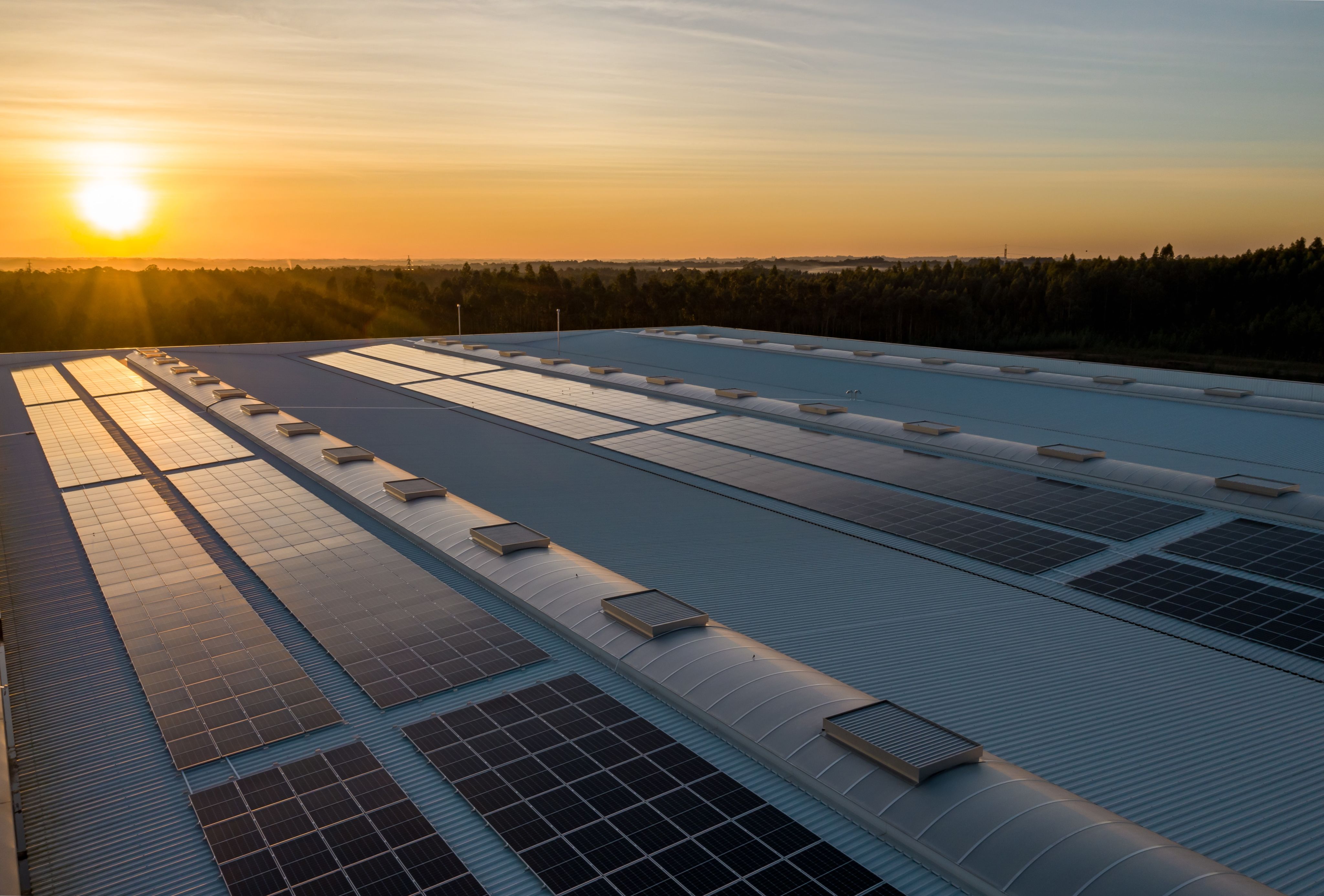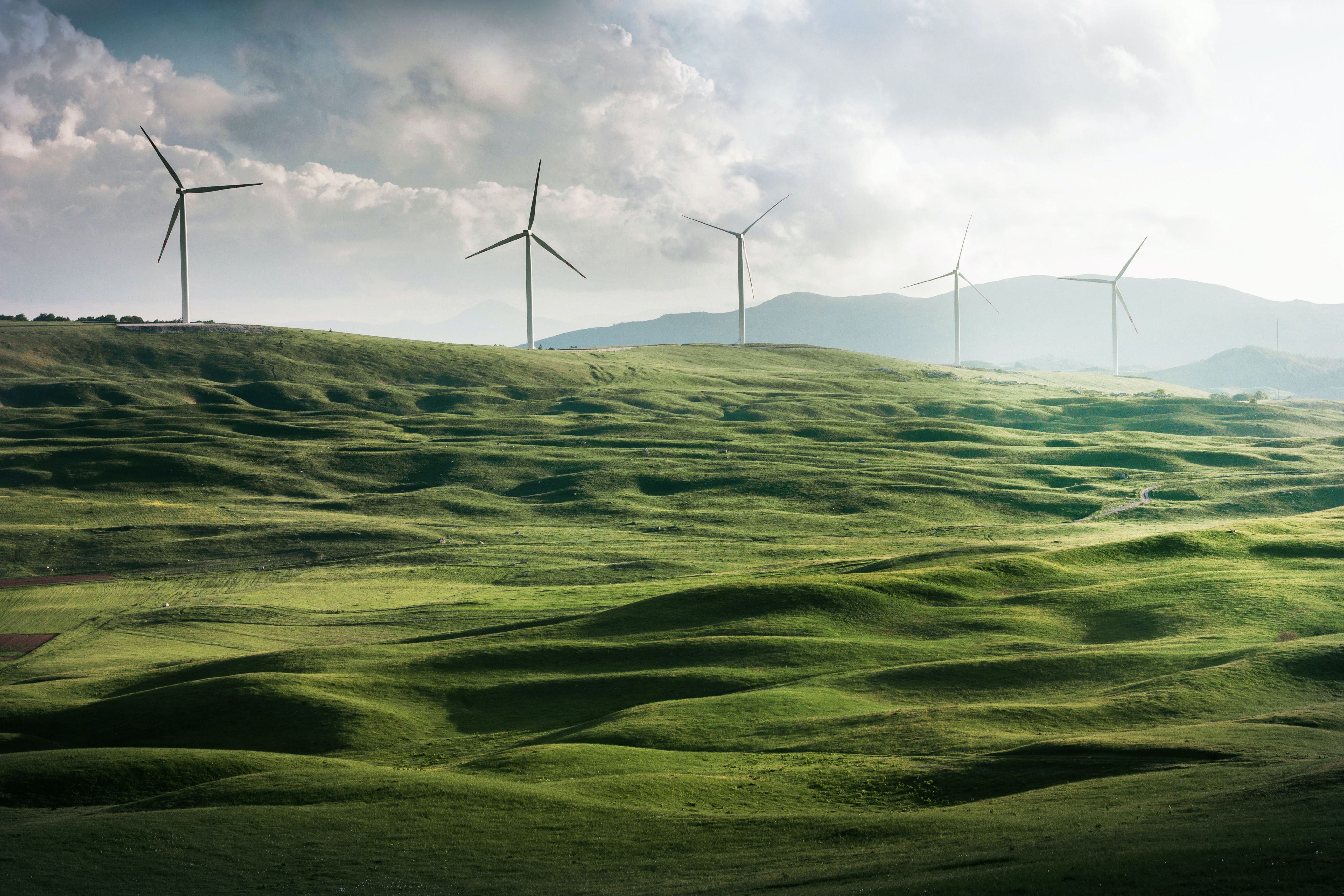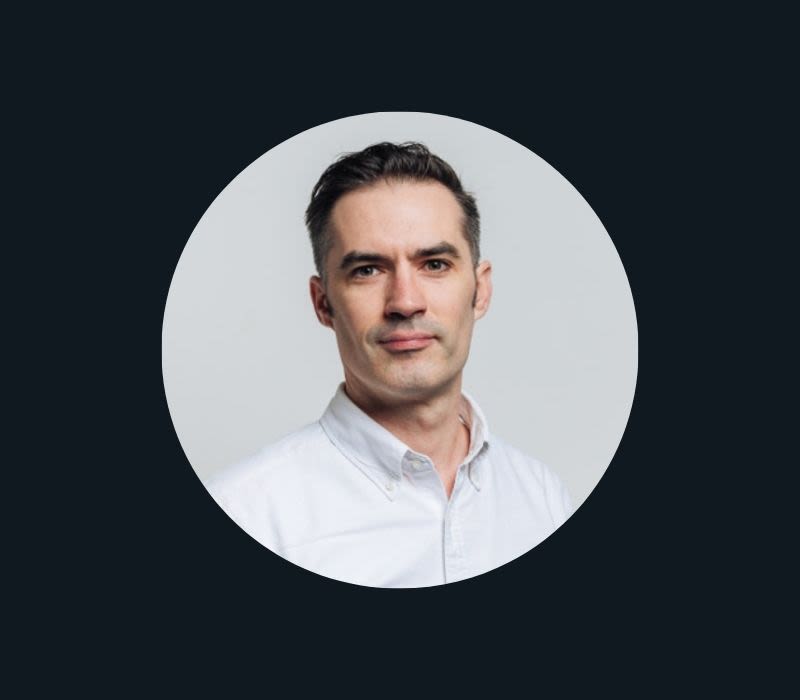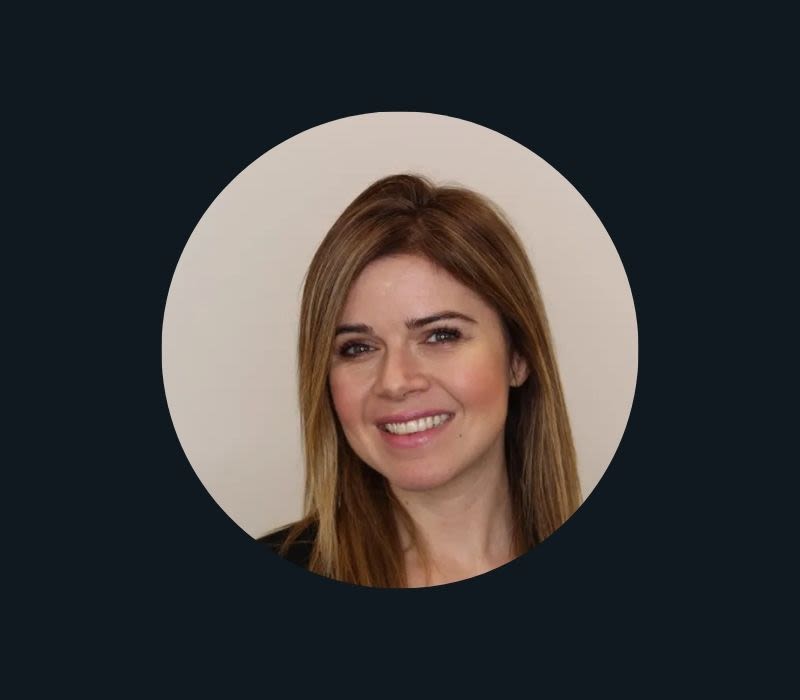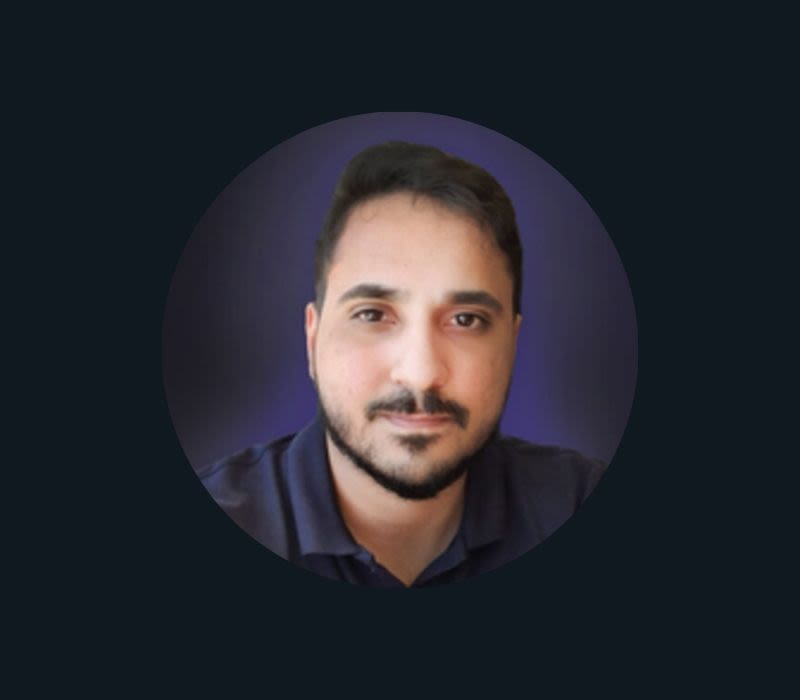Podcast: Energy Poverty and Energy Justice
Millions struggle with inadequate access to energy services globally. How can law and policy redefine energy poverty and justice ensuring access to sustainable energy for all?
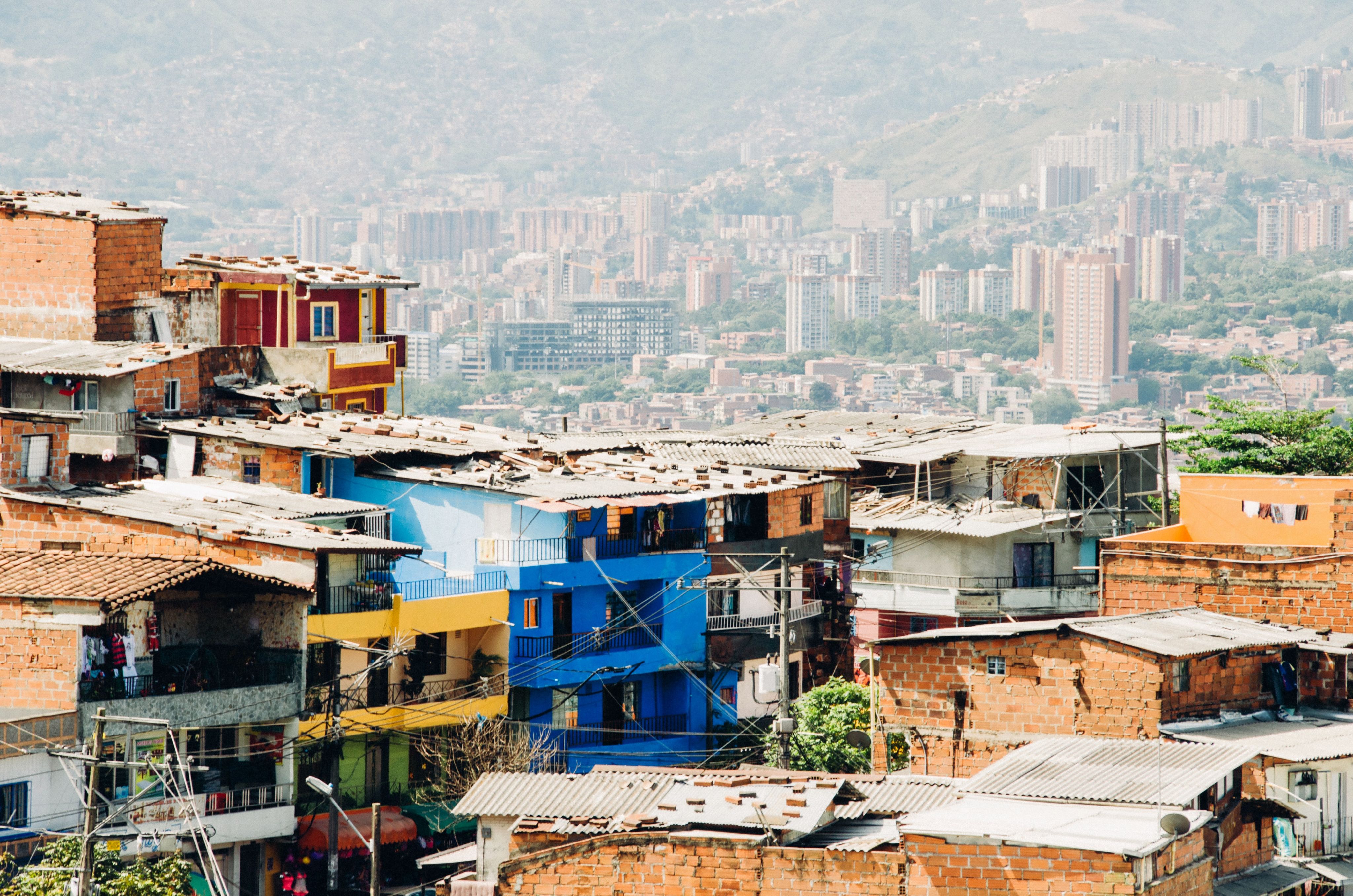
Globally, around 733 million people lack access to electricity. In this episode we explore energy poverty and its implications worldwide. We address questions about equity, access, and the role of law in fostering sustainable energy solutions.
Priscila is joined by Dr. Eoghan McKenna, who shares insights on the scale of energy poverty in the UK and the challenges in defining and measuring it accurately.
Later in the episode, climate activist and lawyer Caroline Prolo, and consultant lawyer and professor Rarisson Sampaio, discuss international perspectives, exploring how legal frameworks and policies are addressing energy poverty in regions like Brazil and beyond.
Listen to the podcast
Photo by Ries Bosch on Unsplash
Photo by Ries Bosch on Unsplash
Photo by Nuno Marques on Unsplash
Photo by Nuno Marques on Unsplash
Transcript
Priscila Carvalho: Hello, I'm Priscilla Carvallo. I'm a lecturer in Environmental Law and Sustainability at the UCL Energy Institute in the Bartlett School of Environment Energy and Resources. In this episode of the Bartlett Review podcast, we're going to talk about global energy poverty. We'll discuss how the law can be used to define what energy poverty actually is and how it can be addressed through energy justice. I'll be talking to colleagues and experts who are leading research and work in this area, and I hope it will shed a light on this issue which impacts millions of people, but really doesn't receive the attention it deserves. My first guest is Dr. Eoghan McKenna, a colleague here at the Barlett who is researching energy poverty in the context of the UK using smart meter data collected to support the fair transition to net zero emissions from building.
Eoghan, it's great to talk to you about this. Can I start by asking you to give us a sense of the scale of this problem and why it matters so much?
Eoghan McKenna: Yeah, thank you Priscilla. It's great to be here. Thank you for having me. Yeah, so I mean, energy poverty is a significant and pervasive issue. Broadly speaking, we're talking about the issue of people and households being unable to access adequate energy services for their needs, and it's an issue that affects millions of people around the world. So for example, in England where I focus a lot of my research on the UK in 2023, energy poverty was affecting from between 14% to 50% of all households. So this is a really significant issue that translates to anywhere between 3.5 million to 12 million households that are struggling to afford their energy bills. They're struggling to keep their homes warm and healthy, and this is a significant issue. It's linked with negative health outcomes, reduced quality of life and wellbeing. So that's in the UK and globally, the scale is staggering. I mean, the World Bank in 2020 estimated that around 733 million people globally do not have access to electricity. And I mean this is a big problem in this context. It can mean lack of basic lighting after dark, which will negatively impact children and their education and potentially even inability to use lifesaving medical equipment at home. So yeah, this is a really important issue. It's not niche and we need to address it as a matter of urgency.
Priscila Carvalho: And this is sheds light on the issue very well. And focusing on the UK a little bit more, what would you say are the main challenges in this area? And also with regards to the collection of data at such a vast scale, it would be interesting to hear more about the challenges around that.
Eoghan McKenna: Yeah, sure. I mean, I guess in the context of the UK, energy poverty is referred to as fuel poverty and broadly it's relating to difficulty or the inability of a household to keep their home sufficiently warm at an affordable cost. And so broadly it's got three key components. There's the household income, there's energy costs and energy efficiency. I think I'll just point out that energy poverty or fuel poverty is a very sort of multidimensional problem. And even within the UK we have multiple different sorts of definitions. And so there's one definition that the government uses for fuel poverty in England, and there's different definitions that are used in Wales and in Scotland. Different definitions result in essentially different estimates for how many households are in fuel poverty. And so coming back to what I was mentioning earlier in England, there's this range of estimates of households that are in fuel poverty, as I said, anywhere from 14% to 50% depending on the definition.
Priscila Carvalho: Having so many different definitions, how does that affect the collection of the data and if at all, and how is the data that you work with advancing knowledge in this area of fuel poverty as well? And how do you see these discrepancies in definition? How does it represent a barrier or hinder certain directions that the work could be going?
Eoghan McKenna: Yeah, so I mean it's very relevant because I mean any government that wants to tackle this issue needs to start essentially with a sort of definition. They need to describe what it is, they need to understand it so that they can start measuring it. And everything that follows on from that in terms of identifying households that are the ones that need the help and then trying to come up with strategies. And so then there is this fundamental challenge of collecting the data in order to be able to measure the problem. And so in England, there's the English housing survey that's a national survey that's conducted annually, it's been long running, and that feeds into and informs and is the basis of fuel poverty statistics in England at least. One of the challenges with that exercise, which as I said is conducted by the government, is that when it comes to energy and building so energy, fuel poverty is related to energy in buildings.
As I said, one of the principle components is energy costs, but that has historically always been a very difficult thing to essentially monitor, to measure within the definitions that are used in government. They sort of bypass that by modelling energy. So they say, well, how much energy would this household be expected to need in order to adequately heat their home? And this is where my research comes in. Smart meters have been getting rolled out in very large numbers. And one of the benefits of smart meters and not those in Great Britain in particular, is an ability to access the data and smart meters have advantages. So they measure the energy consumption of the building, but also the tariff. And so right there you've got this essentially instrument that's being rolled out across the nation, which collects very detailed information about energy costs. And in my research that's one of the things that I'm focused on is essentially making use of smart meter data in order to inform energy poverty research. But another recent project that I've started is very much focused on the identification of households in fuel poverty. So one of the challenges is simply finding the households that might be eligible for these things and actually a considerable amount of money can be spent on essentially paying for agents who are referring or are able to source potential households and provide referrals to these energy efficiency programmes.
Priscila Carvalho: What is the biggest gap in terms of data? What does the smart meter not do that, if it were able to do, would enhance the possibility of understanding this problem? Are there advances that we can be looking towards the future in terms of capacity to measure this that the smart meters perhaps today might not have?
Eoghan McKenna: It's a good question. So I think smart meters have some advantages from the perspective of scientific and statistical research and a particular research that is interested in large scale observational studies of energy use in buildings and in conducting field experiments. So I mean there's a few things here. One is the sort of availability as in I think it's, over 50% of households that have got smart meters now they facilitate relatively rapid research. So there's a number of reasons why as instruments, they're very useful for this area of research.
Priscila Carvalho: And to finish, if you have an example of other countries tackling this issue and how they were doing that?
Eoghan McKenna: I thought I would just sort of highlight New Zealand as an interesting case. In New Zealand, they have an initiative called Warm Up New Zealand, and it was mainly focused on improving the energy efficiency and the heating systems of older households. The reason why I think it's innovative is because they recognised the potential for energy efficiency to improve health outcomes related to poor housing conditions. And so they very specifically included in their evaluation an evaluation of the health benefits of these households having had improved energy efficiency. And indeed they found significant health benefits for the households that were getting these measures and the benefits in terms of reduced hospitalisation rates for things like respiratory conditions. And I think that they should be praised for having at least recognised that and measured it. And I think that that has been viewed as quite a success. And now the New Zealand government is doing more of this and they're particularly focusing on rental homes, low income tenants and households that have high health needs. They're focusing on providing help for households with young children living in cold damper and unhealthy homes. So I think it should be highlighted as an exemplar in that case of really looking at the co-benefits of energy efficiency measures, which I think is relatively innovative and unique and I think could be rolled out more widely.
Priscila Carvalho: This is very interesting to learn and to see such a holistic approach being taken towards what we're then promoting there. I really appreciate learning this from you and many thanks for helping us understand what we mean by the term energy poverty, fuel poverty, the distinctions between different geographies and in countries like the UK. And now we'll look at other geographies like Brazil and potential solutions that can be fostered by energy justice. Thank you very much.
Eoghan McKenna: Thank you very much for having me. It's been my pleasure.
Priscila Carvalho: Many thanks to Eoghan McKenna for helping us understand what we mean by the term energy poverty in countries like the UK. And now I would like to look at other geographies and potential solutions that can be fostered by energy justice. To help me do that I'm joined by two colleagues who are both working in Brazil and join me now from Sao Paulo and Sierra. First is Caroline Prolo, who is the co-founder of La Lima, a network of climate lawyers in Latin America, and also Rarisson Sampaio, who is a lawyer and an academic focusing on energy justice and sustainable energy policy. Many thanks to you both. I'll start with a question to you Rarisson, please. What is the situation of energy poverty in Brazil and how does it compare to other emerging markets and developing countries?
Rarisson Sampaio: Thank you, Priscilla. It's a privilege to be here with Caroline and as previously said by Dr. McKenna, energy poverty is a multidimensional concept and it can be understood as the weight of the energy bills in the household's budgets as well as the lack of access to reliable systems. So this is a common question in Brazil, for example, and another emerging cultures, the lack of access in quantity, quality and financial or affordability. And these three dimensions refer to different conceptions of energy poverty and it fits very well to explain the Latin American context.
Priscila Carvalho: Caroline, could you help us learn what is the state of the art of discussions and recommendations and directions when it comes to energy poverty at the international level please?
Caroline Prolo: Thank you, Priscilla. Thank you for the invitation. So pleasure to be here. Well, I'm going to mention very specifically one international treaty that is very relevant to this discussion, which is the United Nations Climate Change Convention. And there are currently two conversations happening, one about energy transition and another one about just transitions and they merge with each other. We're going to talk about this on energy transition specifically for the first time in 30 years in this agreement, countries are addressing the need to transition away from fossil fuels and to phase out coal. But for many developing countries like India and African countries that are extremely reliant on coal, for instance, this is not an easy conversation of course.
So there is this dimension of justice in the transition process that needs to be considered as well. And this has led to various initiatives that are focusing on energy transition to accommodate the idea of a just transition as well. One of such is the just energy transition partnerships. So-called J-E-T-P-S, this is a new financial structure for accelerating the phase out of fossil fuels in intergovernmental partnerships that coordinate these financial resources and technical assistance from countries in the global north to a recipient country from the global south, and mostly targeting emerging economies that produce and consume coal on a large scale at the moment.
Also in the context of the UN Climate Change Convention, there is a focus conversation on just transition via a work programme on just and equitable transition. This is a work programme that was launched last year in Dubai, and it encompasses pathways that include energy workforce, all the socioeconomic aspects and dimensions that need to be considered from a perspective of just transition. And we will focus on opportunities, challenges, barriers to sustainable development in poverty eradication as part of transitions globally to low emissions and climate resilience. So we are seeing in this context, in this particular context of climate change in the multilateral negotiations on climate change, that energy transitions and just transitions are merged into a single dimension that needs to be taken care of.
Priscila Carvalho: You add an important concept of justice that I guess in many ways, from a policy perspective, will make it even more challenging because it just shows the variety of issues influencing energy poverty and also across scales across countries within countries. Which leads me to another question. How hard is it to make policy to address all these different aspects?
Rarisson Sampaio: So given the multiple dimensions of energy poverty, it's difficult to make a policy to address the problem in all dimensions. Governments and lawmakers must take into account the energy through Lima, the balance between economic, structural and environmental objectives. To build a good policy, we need to have an approach like a bottom up. So we need to look to the local level to make a policy to address the problem as a big major problem. So for example, in Brazil, energy costs compromise half or more than a half of the income of 46% of Brazilian households who perceive an average of about one minimum wage. The guideline given by the Europe commission is 10%. What can we do about this? So to solve energy poverty at the local level, we need to look at the needs of these groups to address the poverty policies and assure the effective participation of society as a central point. The society must be part of the discussion and not just an object of the discussion.
Priscila Carvalho: Do you think that this might ultimately mean that we should rely on more government spending to change the system?
Caroline Prolo: Well, not exclusively, I would say so in Brazil, we have already more than 1.8 million renewable distributed generation systems, which is something around 19 gigawatts of capacity, and the vast majority of that is of solar. And this was the result of a new law in 2022, which introduced some substantial changes to the energy compensation system applicable to consumers with small sized distributor generation in Brazil. So there is a lot that can be done with better policies, better regulation to do some fine tuning in the systems that are already in place.
Priscila Carvalho: Thank you. This brings me to the next question, which I guess to a certain extent you have now answered because it would be on what is some of the legal actions that are being taken. And you have provided some examples both at the international level and now these examples of regulation in Brazil. But if there's anything else that perhaps you had or you, Caroline, could help us learn of what lawyers are doing and how can we influence lawmakers legal actions that are being taken?
Rarisson Sampaio: So when we say how governments spend their monies, it's not about the amount or only the amount of money invested in the energy sector or social policies to address energy poverty. For example, I would say that governments must not only spend more money but allocate more efficiently. So it means to invest in strategic policies to address energy poverty issues and achieve energy justice. For example, greater investment in clean energy sources. So that's a cheaper source than fossil fuels. It may not attend those who don't have a reliable access to influx tutors of electricity or even don't have access to safe energy source. So you need to calibrate the measure to address this problem. So we are in a phase to discuss the legal framework we have today and how we can make a better framework to deal with energy access in Brazil for everyone or for all energy in Portuguese.
So it's a programme who has the objective to expand the access to decentralised energy. So installing panels, photovoltaic panels in communities who has a lack of access to electricity or who are isolated of the national system of distribution. So we look to all energy sector, including energy poverty and give guidelines to governments and the private sector too, to address the problems of access to energy poverty and the building of resilient energy policy to mitigate emissions in Brazil. So we try to accumulate the framework, regulatory framework of the energy in Brazil to continue to invest in clean and safe energy, but to proportionate a sustainable development of these communities.
Priscila Carvalho: These are great pieces of work and it's great to see lawyers coming up with solid recommendations and ways forward. Taking into account the views of the community Catalina, the international level, and you have a whole network of lawyers working on so many different aspects of energy transition, energy justice, and other topics as well. Would you like to please share with us the role of lawyers at that level as well?
Caroline Prolo: Well, as you know, I'm very engaged with the international negotiations on climate change. I know for a fact that lawyers are needed in these spaces. We know that international negotiations can be very difficult to follow on one side because it's a process. It's a process that needs to be respected in full and processes can be burdensome and lawyers can understand and navigate processes as such, and legal proceedings as such. So lawyers are really welcome either in supporting vulnerable countries in these negotiations because they do need capacity building and technical support even to follow the negotiations per se. But of course, also to implement these recommendations that come out of these international processes and translate them into domestic policies. And of course when we talk about energy poverty, the challenges are even more substantial because as it's important for these vulnerable countries to somehow try to develop in a sustainable way, which sometimes to of course use renewable energy alternatives and so on. And again, with lawyers providing the support in terms of bringing this into actual legal frameworks for more legal certainty, for the policies to be embedded in legislation and be durable and survive future mandates of future governments. So it's important to crystallises into actual solid legislation and then lawyers can really help with that. So that's my call for lawyers out there.
Priscila Carvalho: Thank you. I guess it makes me think there's a role for lawyers in the policy arena, the planning regulation, all these different elements that are key at domestic level to address energy poverty and advance energy justice tailored to each context and to each need. I guess to finalise, what do you think could be the implications in 50 years time if we don't come up with solutions?
Rarisson Sampaio: I'd like to join with Caroline in this call for lawyers. We have good professionals in the energy sector, working in regulatory and other skills of our job, but we need more people studying and taking action in this sector of energy for social, for people, for community, for address the problem of energy poverty, but looking to the future in 50 years time, I would say as the years pass and climate policies advance even at a slow pace, sometimes we don't face the problem of energy poverty today and inequalities at all. Today, we'll face a setback in the fight against inequalities, especially in a world pressured by the effects of climate change and the need to reduce energy consumption of polluting fossil sources. And without access to clean, safe, and affordable energy, we are failing in our mission to leave no one behind. So in UK we have a context in Brazil, another context, and Africa, South Africa, another context. So we must look to each one and take policies from bottom up to make a good policy and address properly this issue.
Caroline Prolo: Well, I have to say that I think it's a matter of survival. We cannot cope with climate change without having reliable access to energy for all. And as climate change is going to get worse and climate change aggravates poverty, it's a circular issue. We cannot fight climate change without having energy to adapt to these changes. So that's my call for...
Priscila Carvalho: Yeah, to survive we need to address the vicious cycle between climate change and inequality. So many thanks to my guests, McKenna Carolina Prolo and had. And for more information about the Barlett faculty of the Built environment, you can visit our website, www.ucl.ac.uk/Bartlett and follow us on Twitter at the Barlett UCL.
About the speakers
Dr Priscila Carvalho
Lecturer in Environmental Law and Sustainability, UCL Energy Institute
Dr Eoghan McKenna
Photo by Appolinary Kalashnikova on Unsplash
Photo by Appolinary Kalashnikova on Unsplash
Learn more about Economics and Policy of Energy and the Environment
Our industry-leading master's degree in Economics and Policy of Energy and the Environment MSc trains you in the economics, policy, and modelling skills that you need to be part of the global solution.
Story produced by All Things Words
© UCL The Bartlett 2024



